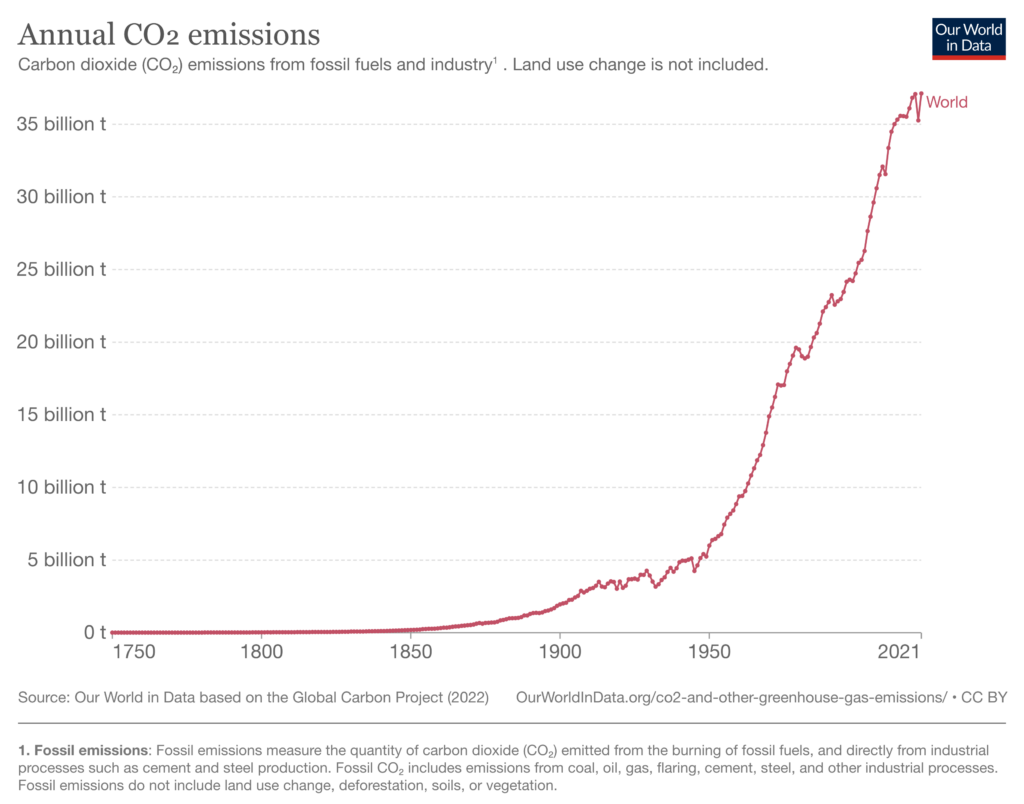Climate change will continue to be a direct threat to our everyday life as we know it until cycles of change are created. One direct adaptation that could be made to lessen the impacts, effects, and even the presence of climate change is education surrounding this issue. Climate change education is lacking in the education system of not just Easton, Pennsylvania, but regrettably in the education system across the United States, and some could even argue worldwide. For this project, we worked with a community partner on the Easton Climate Action Plan. In doing so, we are hopeful in trying to mitigate this issue and prove some success.
Knowledge of this topic may not be as widely available to most of our populations as we may have tended to think, which means that solutions to climate change topics and issues, as well as general awareness over this topic overall are directly being offered as a result. However, there have been recent updates in Pennsylvania’s Standard of Science Education that requires climate change be incorporated into the curricula statewide. Even with this update having been implemented, teachers statewide are still adjusting to this recent change and how to incorporate it into their teachings. It has come to the attention that the “standard” ways to go about teaching science and global wellbeing are obsolete, which is why organizations such as the Nurture Nature Center are so important during this transitional period. The Nurture Nature Center is a nonprofit organization located in Easton and was created in 2007 with the intention to focus on science education and community engagement through the aid of artistic expression.
Recently, Easton has updated their Climate Action Plan to allot funding for climate change education and further this continuation within the public school systems of the Easton community. With this recent source of financial support from the Easton Climate Action Plan, it is important to note that rather than creating a new technology, our project will be working in collaboration with Easton’s Climate Action Plan and as previously mentioned, this project will be working in close collaboration with a contributor to the Climate Action Plan, the Nurture Nature Center. By working together, it can further create a relationship between both the Nurture Nature Center and Lafayette College as both these contributors value sustainable solutions and wish to share these practices with the community of Easton.
The studies behind climate change education within youth help express the idea that while students are familiar with climate change, they lack the knowledge when it comes towards solutions, they can implement into their daily lives in addition to their individual role within climate change mitigation. Moreover, in a study conducted through Brookings, it was concluded that if only 16% of high school students were given adequate education in regards to climate change and climate change solutions, that alone would result in a reduction of carbon emissions of 19 gigatons by 2050 (Kwauk & Winthrop, 2021). To better frame this perspective, on average, humans emit around 10 gigatons of carbon dioxide emissions per year, however in as recent as 2021 we had 36.8 gigatons of carbon released into the atmosphere (Bressan, n.d.). If only 16% of high school students can cause a 19 gigaton reduction of carbon emissions, just imagine how many gigatons of carbon can be reduced if climate change education was open to a broader stream of the public and education surrounding climate change was more available, especially in the entirety of the schooling systems. This statistic, while insanely staggering, is motivation in the efforts needed when combating climate change and implementing technology that can be used to bring forth climate change education. 
Moreover, as seen throughout the workings of the Nature Nurture Center, it takes a community to make a change on the effects that climate can have on not only their community, but the rest of the world. Allen and Crowley (2017) argue that climate change education alone is not enough to make the difference that our world so desperately needs. However, by coming together and working as a community, alongside the assistance of higher powers or even governance or sorts, distinguishable impacts can be made to this endeavor. They noted that this idea is called collective efficiency, and it allows for the engagement, participation and involvement of the community at a larger scale. Though climate change education may not seem like the most glamorous and advertised way to go about combating climate change, it is our hope that bringing forth knowledge of the change it could bring to our daily lives to younger generations could inspire them to take action.
Our project will specifically be working with the Nurture Nature Center to create the framework for their annual symposium, which will be an event that, while it has already taken place in the past, will continue in the future with this new partnership between Lafayette College and the Nurture Nature Center. The framework of the symposium will allow for future iterations of this project to be completed in addition to ensuring the longevity of this event and the ongoing success that it will instill within those in the community of Easton who participate.
Read the Social/Political Context Next!